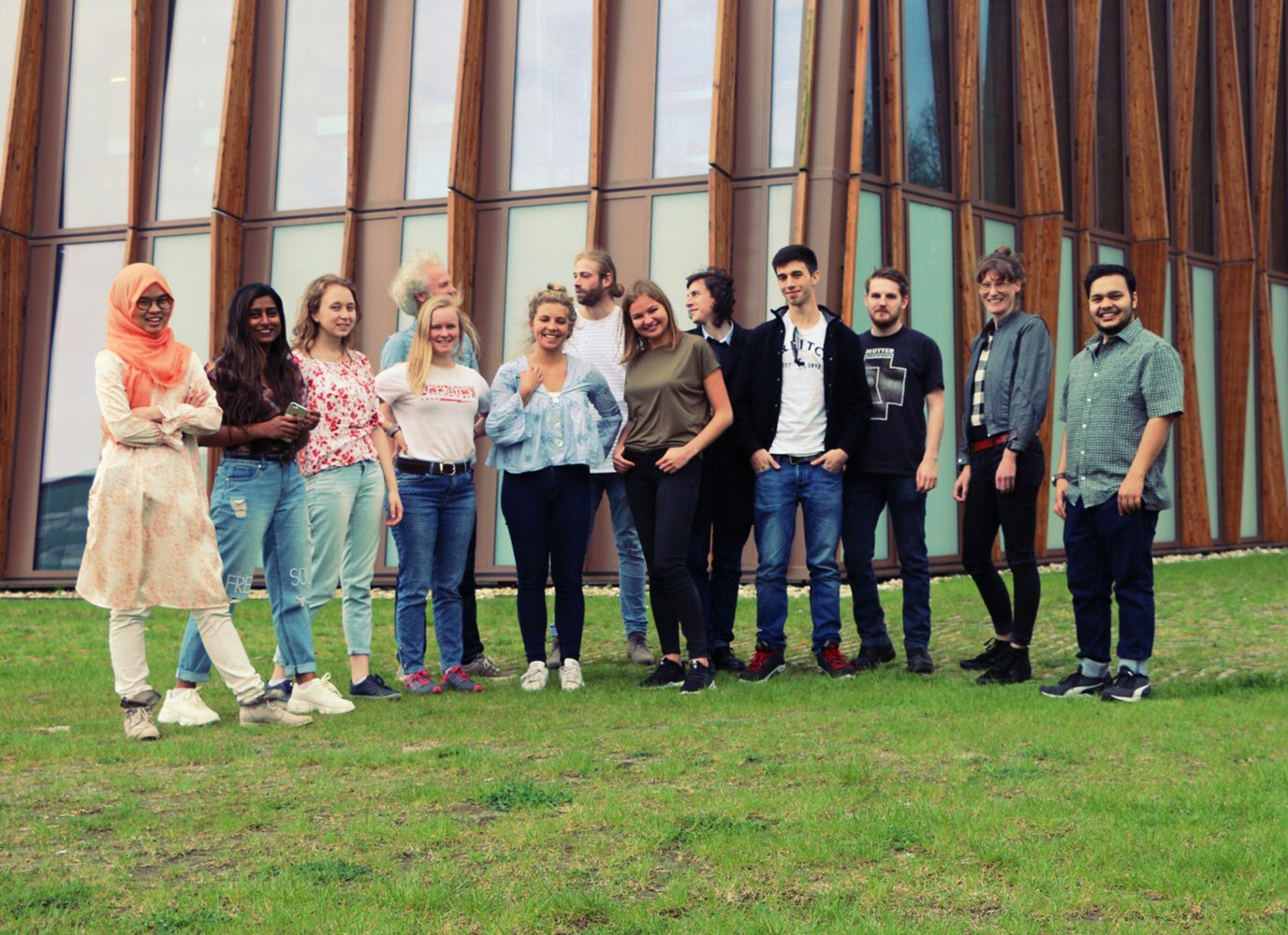iGEM 2019: team UG wins gold medal
Team UG won a gold medal with their bio QR code at iGEM (international Genetically Engineering Machine) 2019 in Boston. They received the medal during the closing award ceremony. Winning a gold medal means that the team has performed exceptionally well with their project.
To win a gold medal, as a team you have to convince the jury that you meet all medal criteria. For example, you must be able to demonstrate that your conceived technical system works, that you have investigated and addressed problems in your design and that you have thought about how your project adds value to the world. The 'bio QR', a QR code made of bacteria that grows and becomes visible under certain circumstances and that is intended to improve the security of digitally sharing information, met all criteria. The participation of the Faculty of Science and Engineering in the iGEM competition was again a success this year.
iGEM competition
The iGEM competition took place from October 31st to November 4th at MIT Boston, United States. In total there were more than 300 participating teams from all over the world, including seven from the Netherlands. iGEM is the international Genetically Engineering Machine competition, that is held every year in Boston. iGEM provides multidisciplinary teams of students with the opportunity to find solutions for global problems using synthetic biology.
Video 'what is the bio QR code'

| Last modified: | 19 November 2019 11.24 a.m. |
More news
-
13 May 2024
‘The colourful cells of petals never get boring!’
Most people will enjoy colours in nature. However, the interest of evolutionary biologist Casper van der Kooi goes much further: he studies how flowers, birds, butterflies, and beetles get their colours. He also studies how these colours are used...
-
13 May 2024
Trapping molecules
In his laboratory, physicist Steven Hoekstra is building an experimental set-up made of two parts: one that produces barium fluoride molecules, and a second part that traps the molecules and brings them to an almost complete standstill so they can...
-
07 May 2024
Lecture with soon to be Honorary Doctor Gerrit Hiemstra on May 24
In celebration of his honorary doctorate, FSE has invited Hiemstra to give a lecture entitled ‘Science, let's talk about it’ on the morning of 24 May
